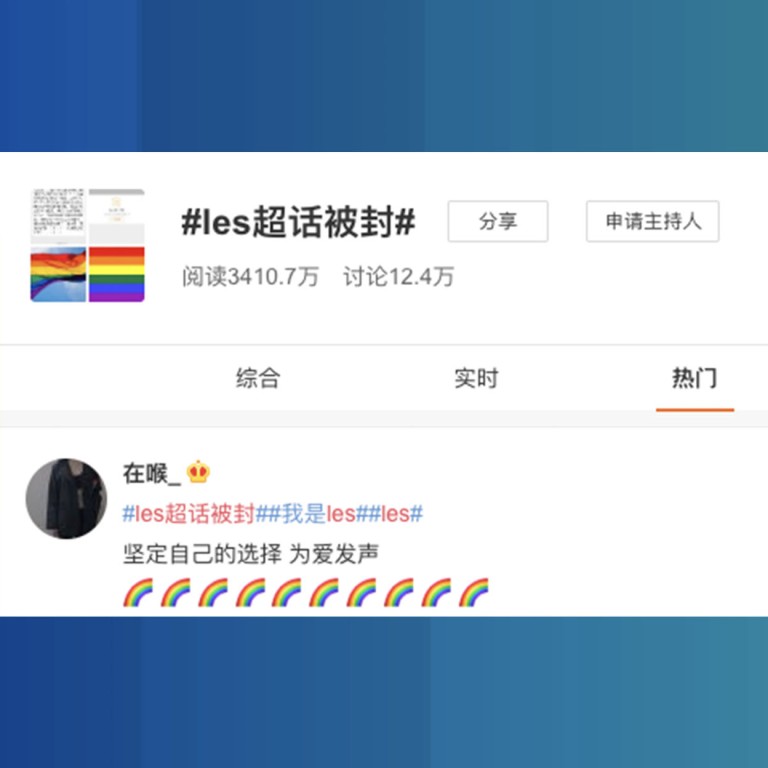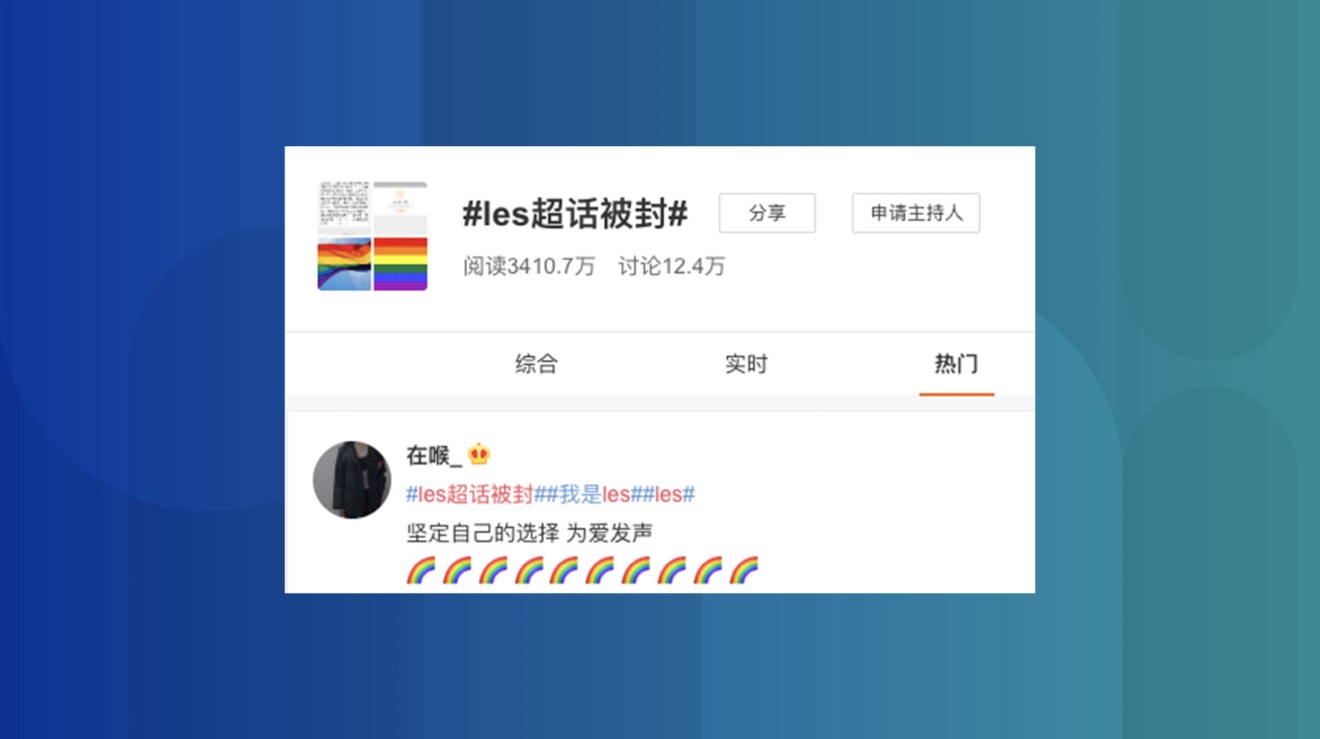
Weibo reverses brief ban on a lesbian page after outcry
China’s media censors still consider homosexuality an “abnormal sexual relationship”
Homosexuality is not illegal in China, but the LGBT community still faces censorship on social networks.
Online protests broke out on Chinese social media after a Weibo community page for lesbians was shut down on Sunday. It’s not clear what led to the sudden ban, given that the social network did not censor any other LGBT-related content.
How Weibo became China’s most popular blogging platform
Netizens then took to other related hashtags, including “I am les” and “les super topic is banned”, to protest. The “I am les” hashtag was read more than 290 million times and has drawn more than 600,000 posts.
“Not having a voice means that even dying is quiet,” reads one of the most liked posts under the “les super topic is banned” hashtag.
Weibo’s super topic function is similar to hashtags, but super topic pages allow users to apply to become page moderators, allowing them to promote high quality posts and block bad ones.
By Monday afternoon, the lesbian super topic page was restored.

Weibo isn’t the only social network in China that censors LGBT-related content, either. WeChat users have discovered they are blocked from putting the rainbow flag emoji in their profiles.
Although Weibo has backed down from another controversial decision on LGBT content, concerns remain. Netizens say that the lesbian page ban is worse than the gay content ban last year because it wasn't announced in advance this time.
For more insights into China tech, sign up for our tech newsletters, subscribe to our Inside China Tech podcast, and download the comprehensive 2019 China Internet Report. Also roam China Tech City, an award-winning interactive digital map at our sister site Abacus.

